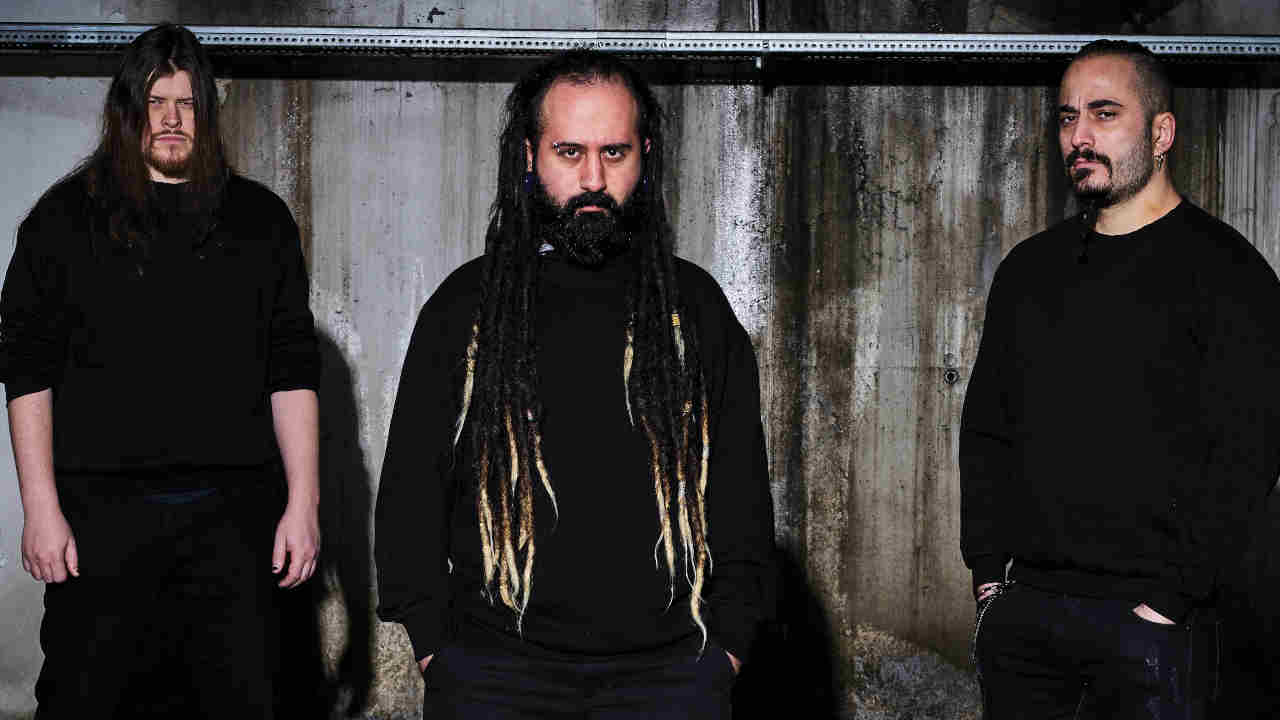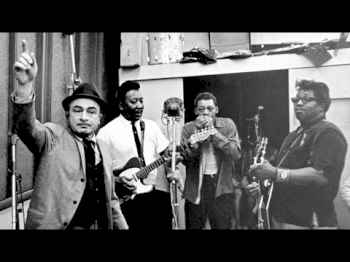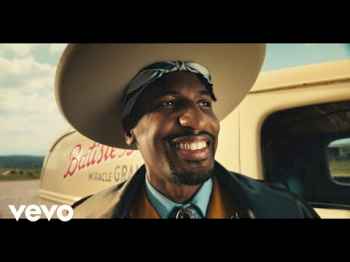“Solitary confinement marks you. It tortures your soul. You’re living day-by-day in fear and uncertainty”: This is what it’s like to be jailed by a repressive regime for playing in a metal band
Has anyone endured more for metal? In November 2015, Confess singer/guitarist Nikan Khosravi and DJ Arash Ilkhani were jailed in their native Iran for making heavy music. The pair spent 18 months in prison, including three in solitary confinement, before getting out on bail and smuggling themselves out of the country.
Reuniting and reactivating the band in Norway, Confess released their third album, Revenge At All Costs, in 2022, chronicling their experiences. With follow-up Destination Addiction now in the world, Nikan offers Hammer the lessons he’s picked up so far.

Creativity never dies
“My dad was an accountant. But before the Iranian Revolution, he worked in the fashion industry. I see him as another version of me from decades ago, born in the wrong place and wrong time. To provide for his family, he had to use his degree and become an accountant, but he was always making dresses for my sister, for my mum, for anyone in the family. He was a big rock fan. When he was working from home on the weekend, you’d always hear Pink Floyd, Jimi Hendrix or Tina Turner.”
Metal is a global language…
“Metal felt very fresh and very new when I first heard it. The first thing I heard was Metallica’s Wherever I May Roam, and that melody stuck with me. A couple years later, a school friend gave me a CD with music by the big bands from the early 2000s: Linkin Park, Slipknot, Korn, System Of A Down. Something in that sound really spoke to me.”
…But not everyone understands it
“Being a metalhead in Iran was pretty lonely. You’re not really wanted by the government, and people don’t really know what you are. You like music that’s really loud and aggressive, and they don’t understand it.”
Sometimes you have to split your personality
“In Iran, we had, like, two different lifestyles. One was with friends and the people that were on social media, and the other was the outside. You had to follow the agenda and laws. It wasn’t easy to connect with other people [who liked what you liked], but you still knew you weren’t the only one. In high school and then in university, I was growing up and could see, like, ‘OK, there are people out there interested in the same stuff that I am.’”
Never censor yourself
“Confess never played live in Iran. You had to get permits and we were against that – you’d have to censor yourself and lower the quality of your performance. It’s like a wolf: take its teeth out and it has nothing. Also, in so many cases, whether they had a permit or it was completely underground, shows were stopped mid-gig. People were arrested, or at least taken to the station for a couple hours. It was discouraging.”
You don’t need to play by other people’s rules
“Confess never stopped. My personality and mindset at the time was like, ‘This is my personal journey and this is my voice.’ I felt, from the very beginning, that this is my way of speaking with people out there. It’s a bit like writing a letter, putting it in a bottle and just throwing it out there, hoping somebody will read it and understand. I think my curiosity overcame my fear somehow. The idea of me applying to the rules that were handed to me, that wasn’t something I could live with.”

Trust your gut feeling
“In 2014, I felt like my phone had been tapped. Every time I was talking, I could hear a clicking sound in the background. In early 2015, I had this experience of being stalked by someone in the street. After a few hours, I could still see this person stalking me. I was with my girlfriend, I confronted this guy, and he acted kind of crazy and took off. In that moment, I was like, ‘Something is about to happen.’”
It’s not paranoia if they’re out to get you
“I knew I was being watched, but I carried on making music because I was too brave… or too stupid. I don’t know! I had an objective, I knew what I was going for, and it didn’t matter who was standing in front of me. It wouldn’t have changed anything. One of my interrogators in Evin prison told me they’d been building a case against me for a year and a half. That means the whole thing started in 2013.”
Don’t let anyone give you a false sense of security
“When I got arrested, my mum was home. It was 8 or 9am, someone rang the doorbell and she went downstairs. She came to my bedroom and her face had completely changed. I got out of bed and saw 10 people in the living room. It was surreal! They confiscated my PC, instruments, books, everything. It took two or three hours, but I cooperated. I was like, ‘I don’t have anything to be afraid of, I’m just a musician.’ I asked, ‘Should I go somewhere with you guys?’ One of them said, ‘For a few minutes, we gotta go somewhere.’ My mum asked, ‘Where are you taking my son?’, and they said, ‘Evin prison.’ That was the moment where I was like, ‘OK, this is something way bigger [than I’d imagined].’”
Solitary confinement is torture
“I was in solitary confinement for 23 hours per day. You get half an hour for a cup of tea in the morning, with a blindfold. They blindfold you the entire time you’re not in solitary. If you’re cooperative, you might get another half-hour around sunset, right before dinner.”
And it changes you forever
“Solitary marks you. You will never be the same person ever again. I was never tortured physically, but it tortures your soul. You’re living day-by-day in fear and uncertainty. One guy told me they faked his execution three times. They took him out, put a noose around his neck, then left him standing on a chair for 45 minutes. They’d come back and say, ‘We’ll do it another time.’”
Don’t let them grind you down
“My bail was about $40,000, another $40,000 for my bandmate. My parents put their house up to pay bail, but the prison wasn’t accepting it. They’d keep saying, ‘The prosecutor is at a meeting’, ‘He’s not here today’, ‘He’s on vacation.’ Whatever! They kept postponing, and the reason for that was they wanted to destroy your personality, your mentality, your family. Everything you have is on the line. It was a very difficult, dark time.”
Don’t be intimidated
“Around December [2016], we heard that bail had been accepted. When we were coming out of jail, the interrogator came to the door and said, ‘I just wanted to tell you, don’t tell anyone [about your experience] if you don’t want your case to become worse.’ As soon as I got out, I looked back at this huge entrance and thought, ‘I’m never coming back.’”
Know when to leave
“I went to court and they gave me a sentence of six years. My family was like, ‘You have to leave.’ I was smuggled to Turkey, because my passport was taken and I was banned from travelling. I basically lived there by myself for 15, 16 months and, during this time, ICORN [International Cities Of Refuge Network] and Freemuse, these organisations who work with persecuted artists to move them somewhere safe, reached out. Through that process, I got an invitation to come to Norway.”
Use the platform you’re given
“Some people here in Norway take a lot for granted. Artists have so much and don’t know how valuable it is. You see artists get so big and don’t really say anything. There are a lot of others who don’t get half the attention, but their music, art, movies or whatever could change something for the better.”
A good friend can make all the difference
“Arash [Ilkani] shared my experience and sacrificed the same as me to be able to pursue his dreams. Being in Norway with him has so much value, I can’t put a price on it. Everyone has that buddy that sometimes you don’t really need to speak to, you just need to look at them. It’s helped me a lot in jail, after jail, after Iran. It helped me cope with a lot of my thoughts and helped me to keep going. You don’t feel completely alone, because you can look over and see someone who’s been through the same thing, even if we don’t really talk about it.”
Confess’ new album Destination Addiction is out now via Evin productions



